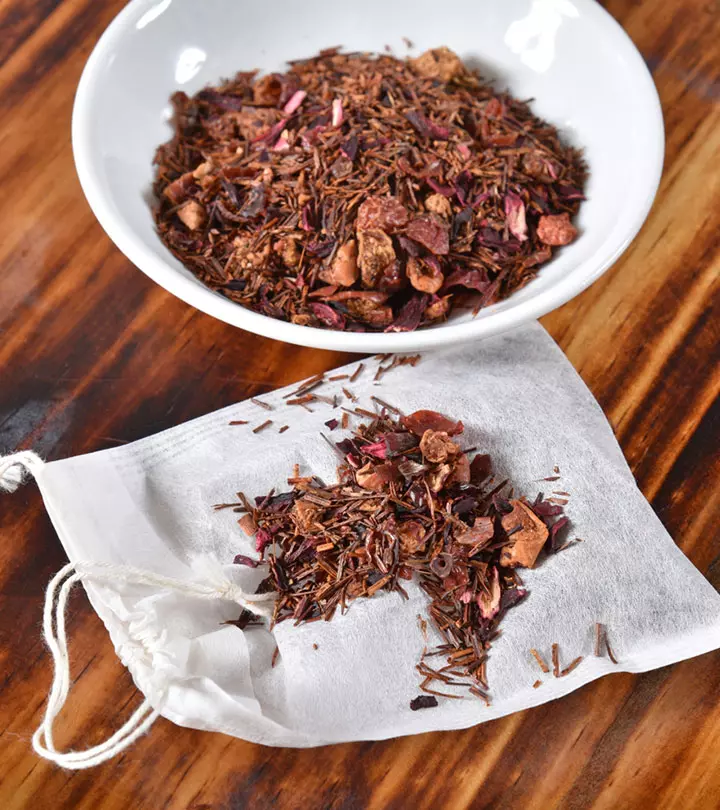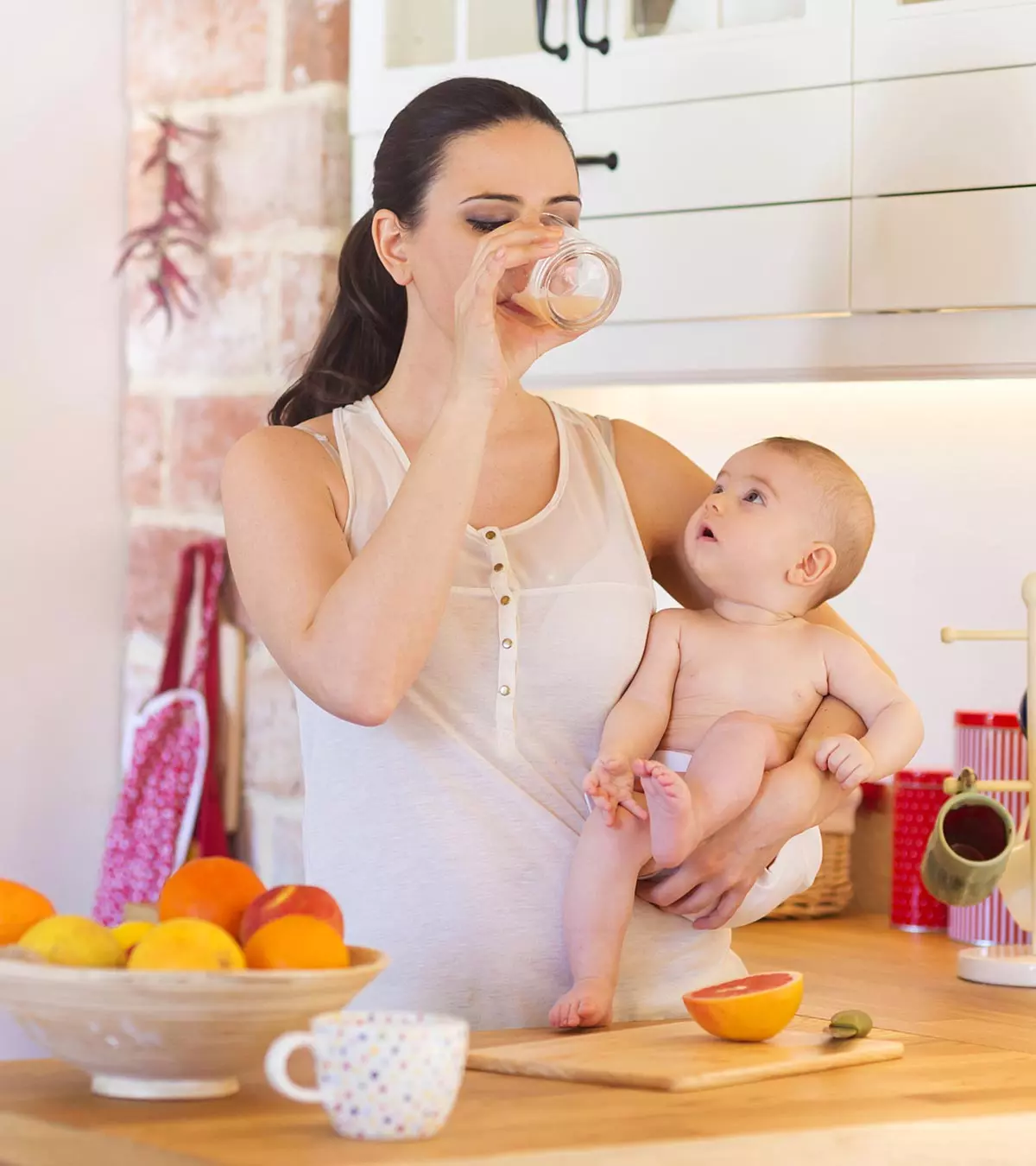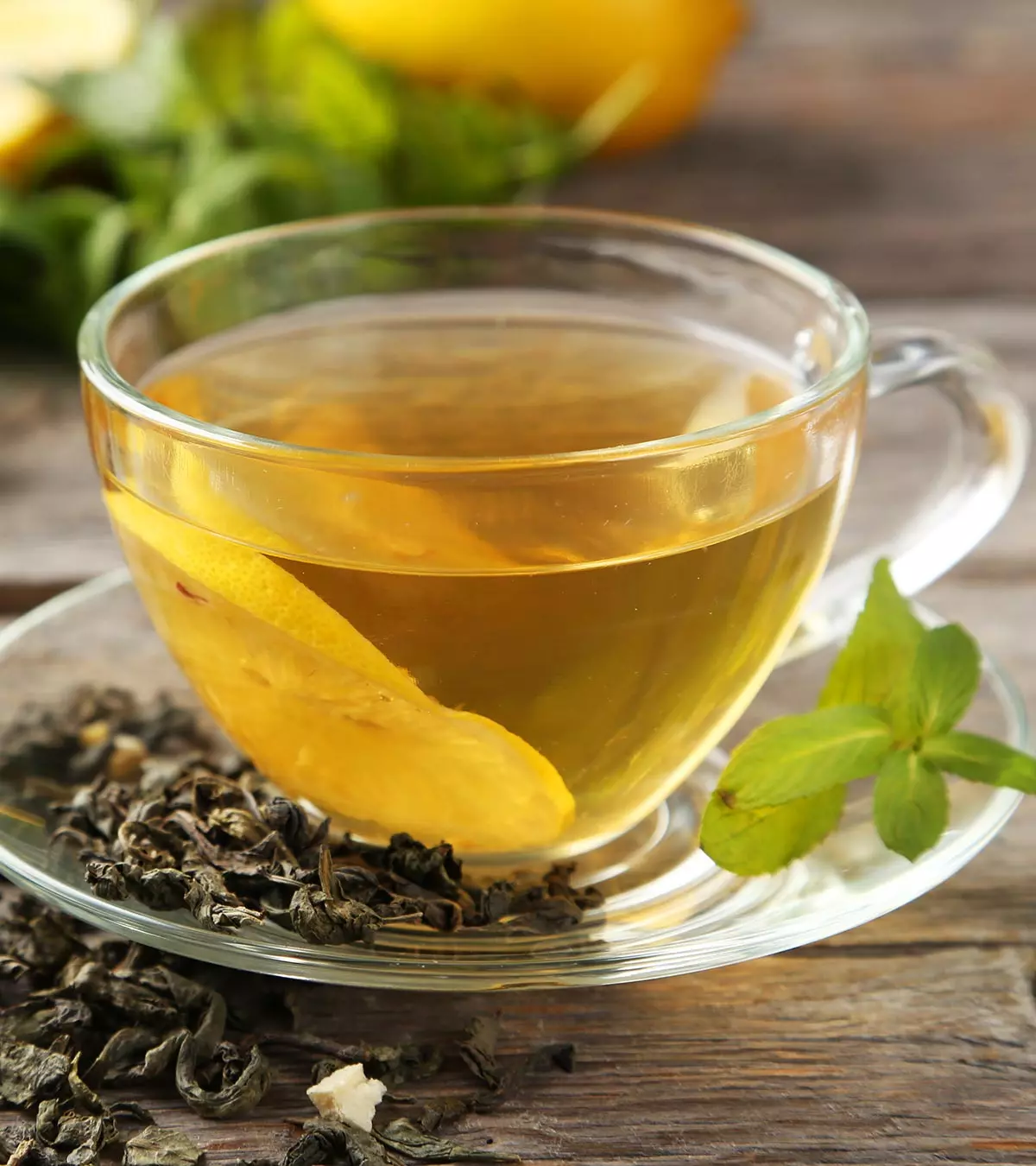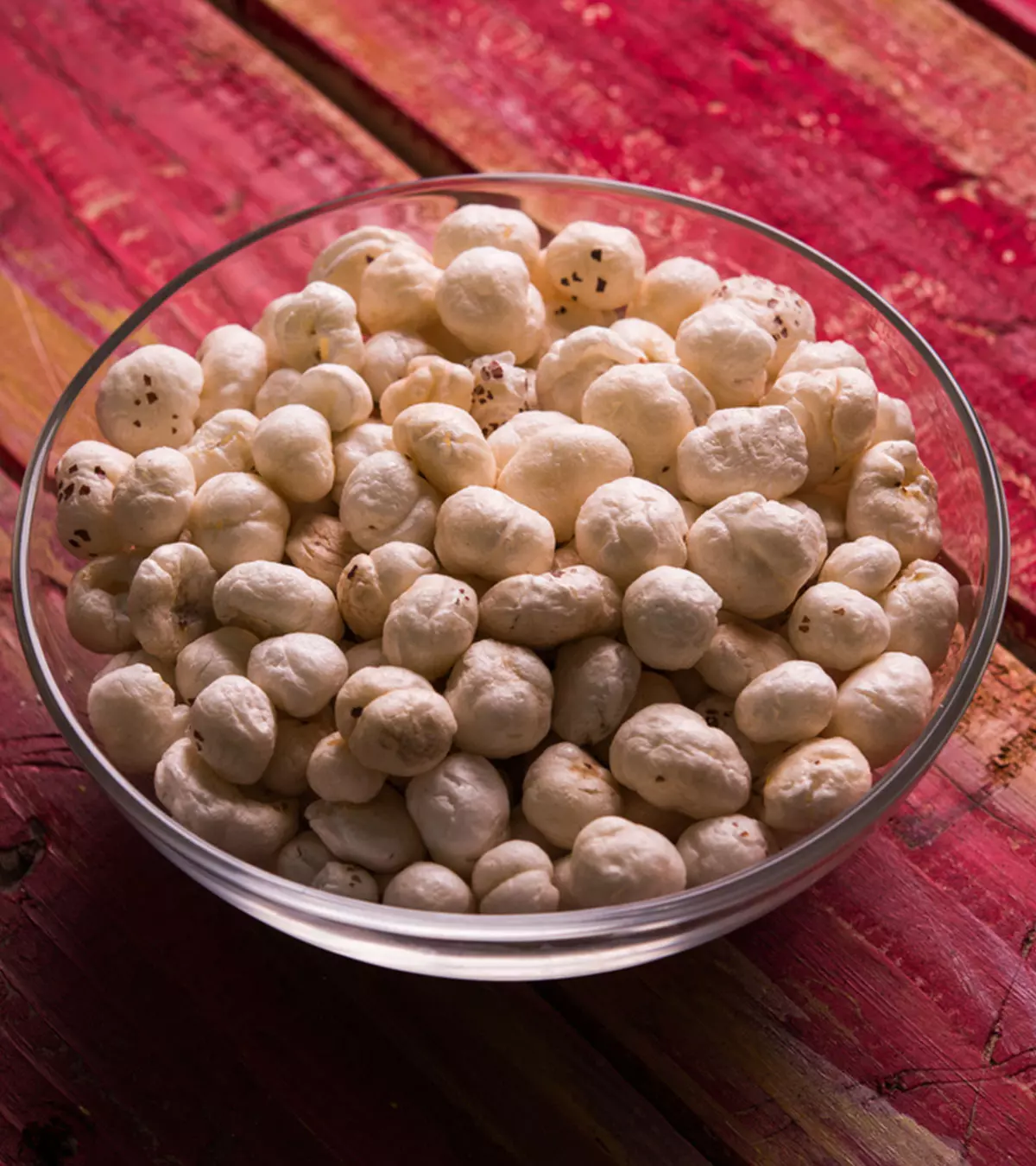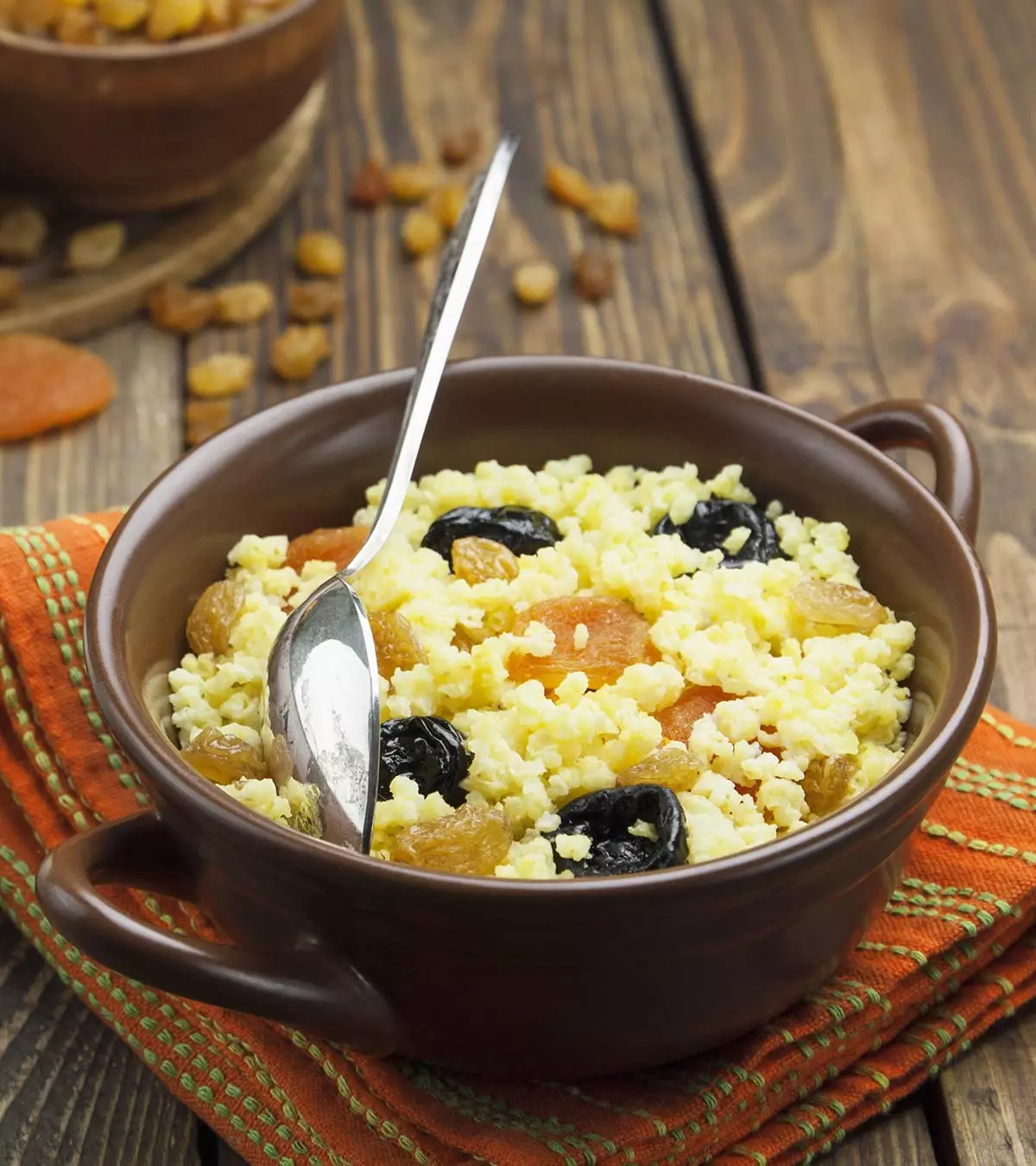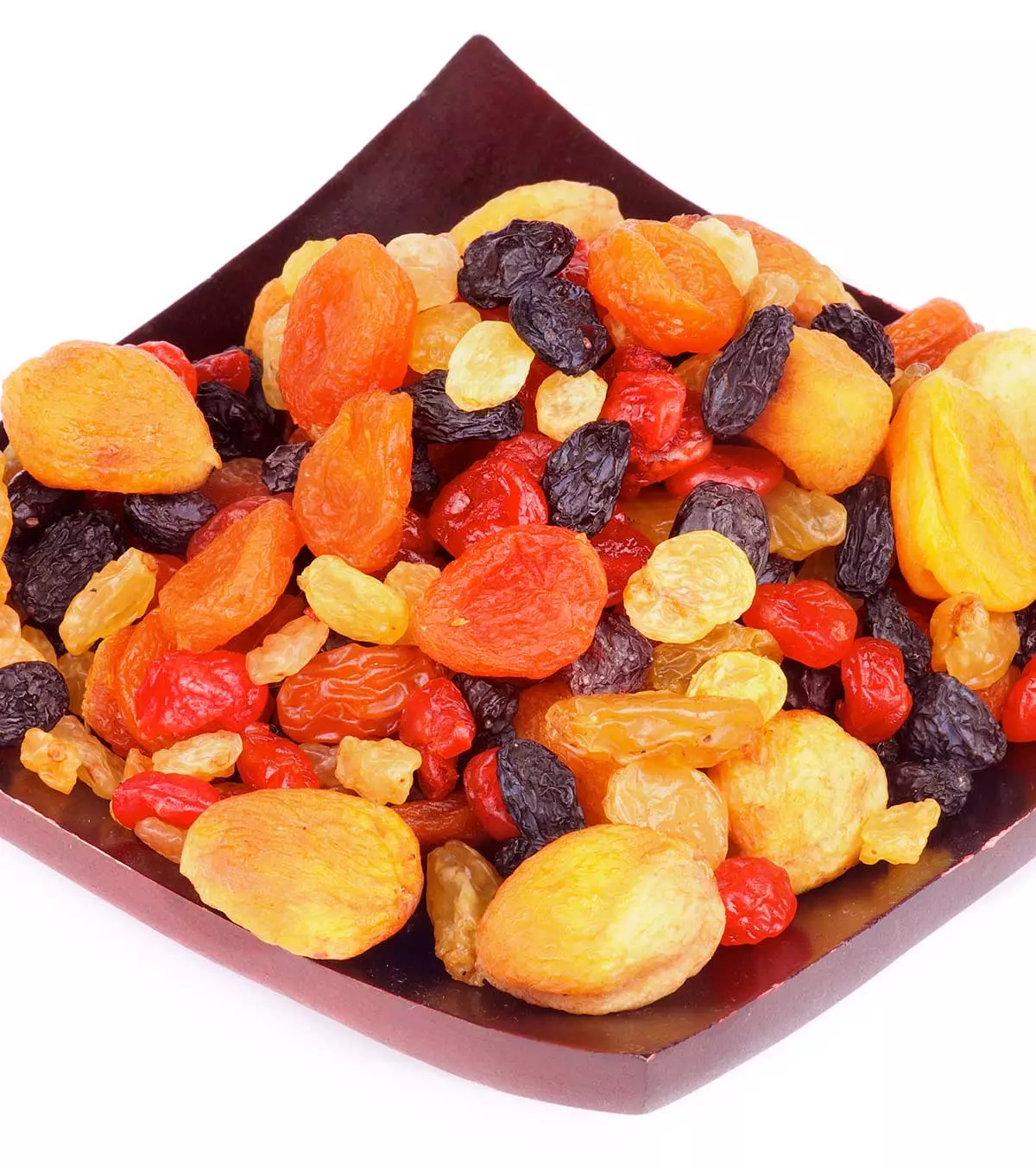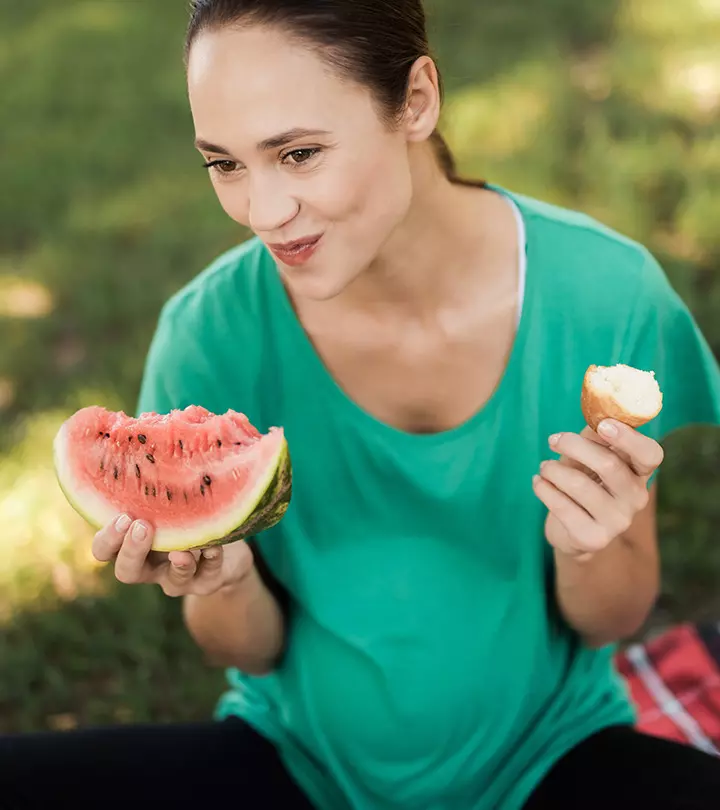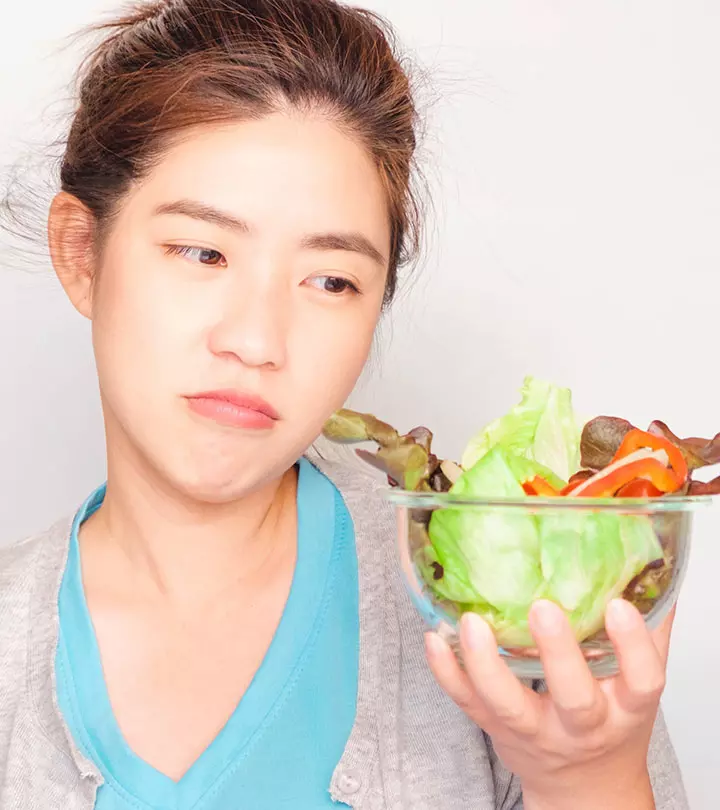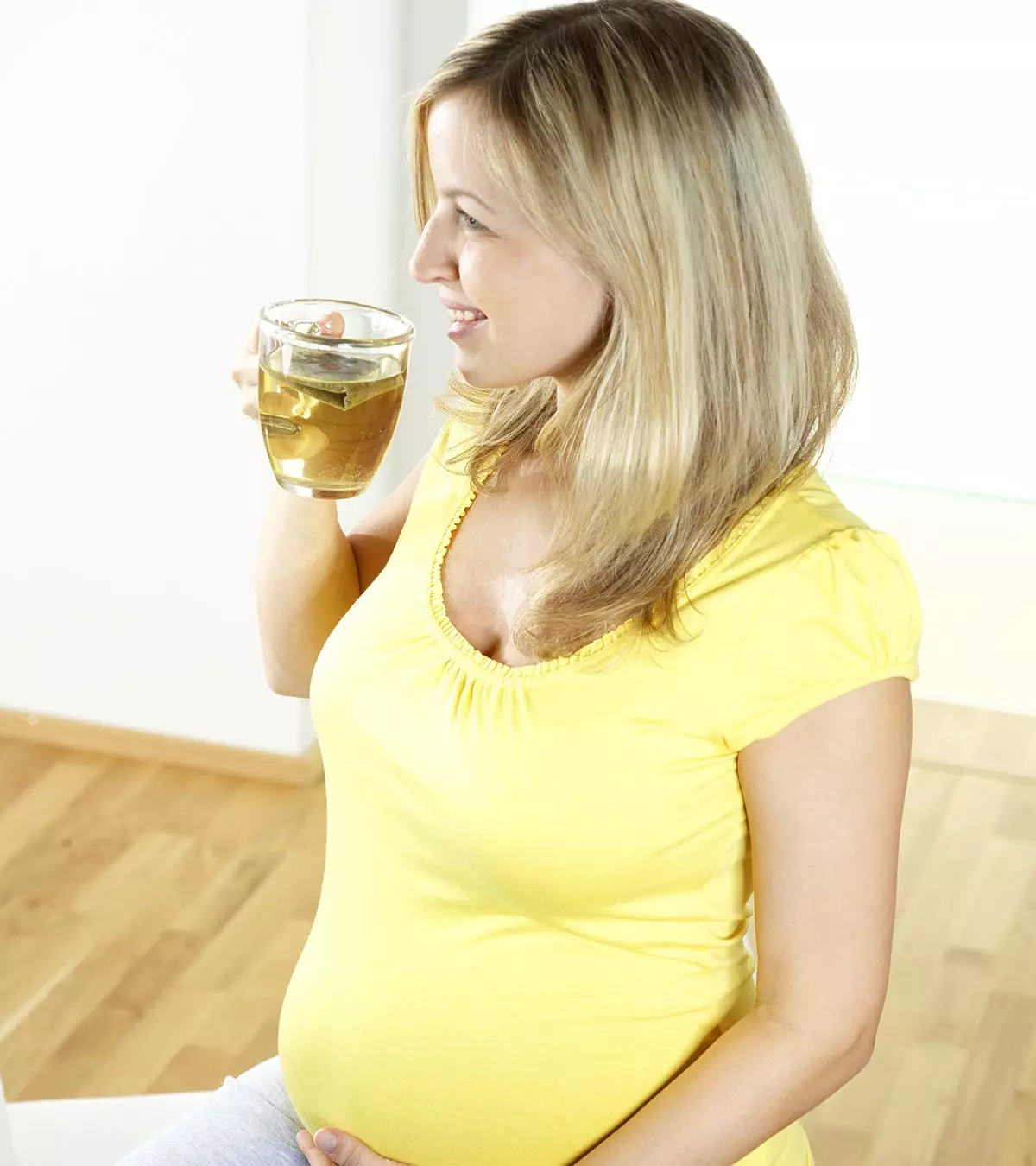
The use of herbal tea during pregnancy is widely common. Herbal teas are commonly considered to be a safer alternative for other beverages. But during pregnancy, you need to be careful about what you eat or drink. Examples of pregnancy-safe herbal teas include raspberry, ginger, chamomile, thyme. But are they all safe to be consumed while pregnant? Do they provide nutrition? Read on as we discuss the benefits and possible side effects of having herbal teas when pregnant and also a list of the popular ones.
Key Pointers
- It is generally safe to consume herbal teas during pregnancy, but it is important to get your doctor’s approval before doing so.
- Many pregnant women choose to drink herbal teas, such as raspberry, nettle, chamomile, and peppermint tea.
- However, some herbal teas like licorice, lemon balm, alfalfa, and slippery elm bark should be avoided during pregnancy.
- Before purchasing any herbal tea, always check the ingredient list and consider buying from certified companies for added safety.
Is It Safe To Consume Herbal Tea During Pregnancy?
Herbal teas are generally considered safe. They are usually considered to be a part of alternative medicine or traditional medicine. They are often used as natural remedies for various illnesses and conditions. But there is not enough scientific evidence to prove their safety or benefits during pregnancy.
Herbal teas that are safe for one woman may not be safe for another. A given herbal tea may not be safe for you if you are allergic to the components in the herb. Sometimes, certain herbal teas may exacerbate your pregnancy symptoms, such as nausea, vomiting, and constipation. Also, the herbs might interfere with your medicines, possibly leading to reactions.
Hence, you should know which herbs can be safe for you during pregnancy, and which ones you should avoid. Consult your doctor before introducing any herbal teas into your pregnancy diet. Try a small sample cup with your doctor’s approval and check if it suits you. Your doctor may also offer insights regarding your health and help you make an informed decision.
Buy these teas from only well-known and certified brands.
 Quick fact
Quick factPopular Herbal Teas: Can You Drink Them When Pregnant?
Below is a list of popular herbal teas that women consume during pregnancy. If your health permits and the doctor gives you a go-ahead, you may try these occasionally. But it is good not to make a habit out of it.
1. Peppermint leaf tea
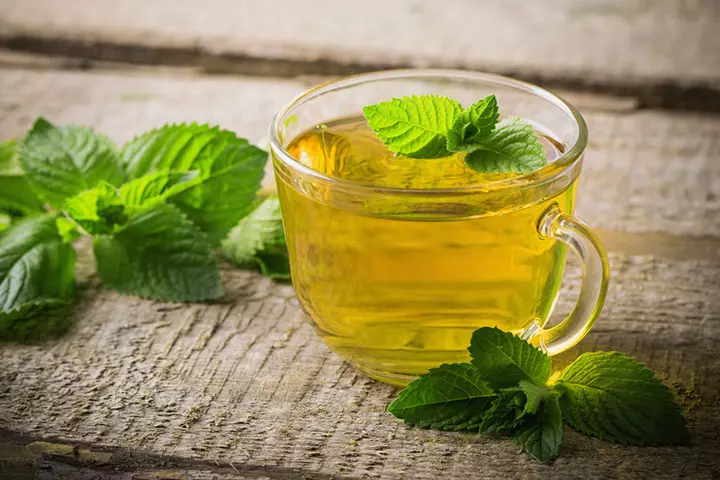
Consumption of peppermint tea during pregnancy is said to alleviate a few pregnancy symptoms such as nausea, heartburn, vomiting, and bloating. Moreover, it provides stress relief. It can also help facilitate smooth delivery. However, high dosage should be avoided as it contains emmenagogue properties (causing abortion) (1) (2).
2. Red raspberry leaf tea
Red raspberry leaves are iron-rich, improve the tone of the uterus, decrease nausea, and may ease labor pains. Some studies also suggest that red raspberry leaf tea can aid in preventing certain complications such as premature labor, prolonged labor, preeclampsia, and postpartum hemorrhage (3).
3. Ginger tea
Drinking ginger tea during pregnancy helps reduce digestion issues, and alleviate nausea and vomiting, which are common during pregnancy (4).It also has anti-inflammatory properties that strengthen the immune system. However, it could lower blood sugar levels and therefore may not suit women who are taking medications for diabetes. Woo Elaine, a mother, shares how beneficial ginger tea was for her morning sickness. She mentions, “I was trying not to drink too much coffee or tea, and I had a slight aversion to milk or dairy products, especially when my morning sickness occurred during weeks 7-8. I realized that drinking Ginger tea helped a great deal, reducing some nausea and indigestion. It is good to drink before or after meals. In fact, I still drink some ginger tea now to relieve mild heartburn and as a digestive aid (i).”
4. Dandelion tea
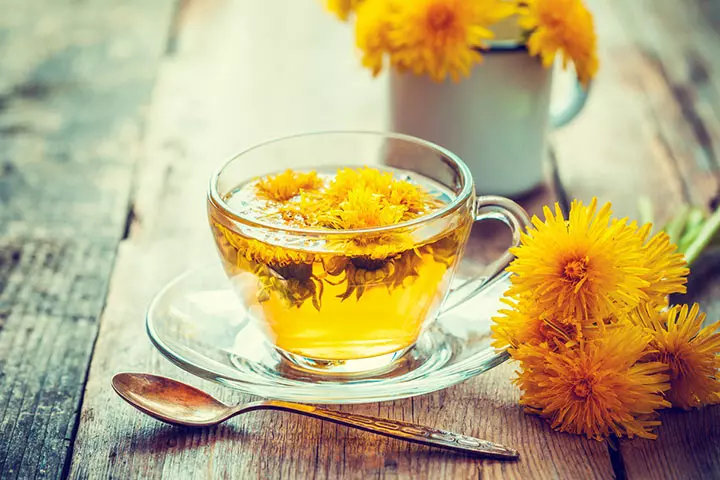
The leaves of Dandelion are known to have mild diuretic properties that help in the proper functioning of the urinary system. They also have a variety of nutrients that benefit prenatal health such as folate, vitamins A, C, and K, and minerals such as calcium and potassium. It is also known to relieve mild edema and nourish the liver (3). It should be avoided by women who have gallbladder problems and acidity (5).
5. Nettle tea
The nettle leaves are diuretic and rich sources of iron and calcium. It could help prevent allergies during pregnancy. Nonetheless, it is good to ask your doctor before drinking it ().
6. Chamomile tea
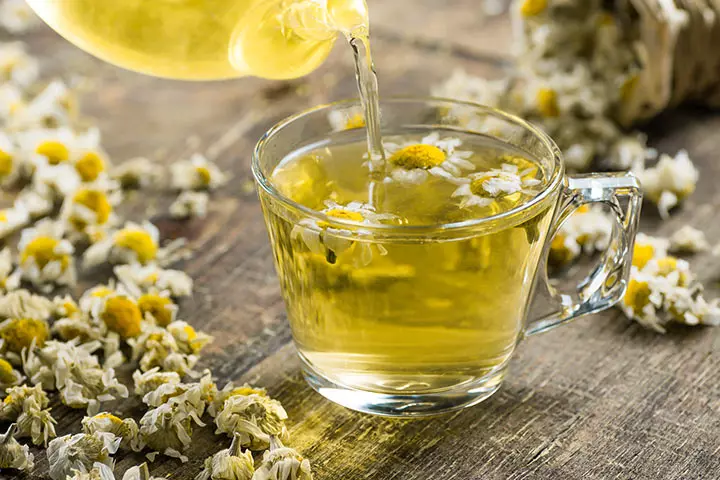
Sipping chamomile tea during pregnancy before bed is said to promote sleep. However, limiting it to one cup a day is recommended when you are pregnant. Avoid this tea if you’re allergic to chamomile (7). The tea provides relaxation though it could make you feel drowsy, and it could also interact with medications such as painkillers, sedatives and antimicrobial drugs.
The above teas may have been found safe in women but the evidence is anecdotal. Therefore, make sure to consult your doctor before consumption. Also, it is safer to try a diluted version in small quantities and check if it has any adverse effects. Even if there are no adverse reactions, do not consume more than one cup a day. Moreover, opt for high-quality herbal teas by certified brands.
There are another set of herbs that you should avoid during pregnancy.
Herbal Teas To Avoid During Pregnancy
Some herbal teas that are not recommended for pregnant women include:
1. Pennyroyal tea
This herbal extract belongs to the mint family. It is toxic and could result in liver failure, illness, and severe health concerns. In pregnant women, it could induce abortion and must be avoided (7).
2. Licorice root tea
Licorice is usually used as a sweetener in drinks. However, drinking licorice root herbal tea during pregnancy could result in cognitive, psychiatric, and pubertal problems in the baby (8).
3. Slippery elm bark tea
If you are pregnant, you should avoid herbal teas made with or including slippery elm bark. The bark is known to have harmful substances that are said to increase the risk of miscarriage. However, it is not scientifically proven (9.
4. Alfalfa tea
Alfalfa contains components that could have estrogenic effects and, hence, is not recommended for pregnant women (10).
5. Lemon balm tea
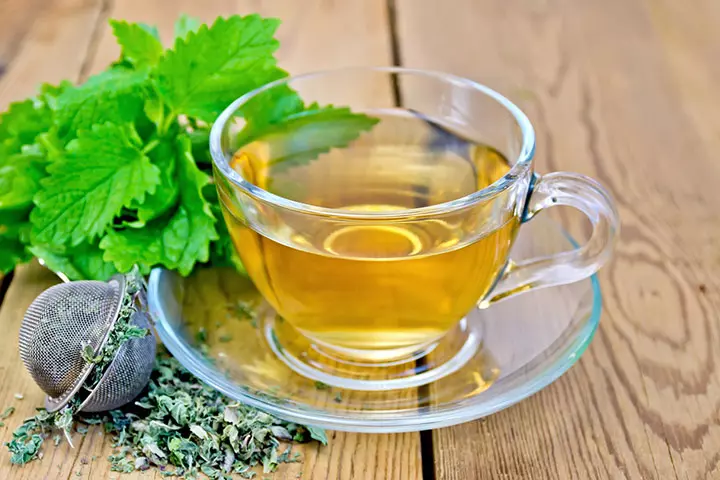
A cup of lemon balm tea is said to alleviate anxiety, depression, irritability, and insomnia. But it is not recommended during pregnancy due to lack of sufficient evidence. Anecdotal evidence shows that lemon balm could have emmenagogic, antithyrotropic, and antigonadotropic effects (11).
 Quick fact
Quick fact6. Yerba mate tea
It is an herbal tea made from the dried leaves of the Ilex paraguariensis plant. The tea contains several bioactive compounds that may help lower blood sugar levels and boost immunity. However, it may not be unsafe during pregnancy if taken orally. Research highlights that there’s a potential cancer risk associated with yerba mate, but it’s unclear if it affects the unborn baby. Besides, Yerba mate contains caffeine that can stimulate different body parts, including the brain and heart (12).
Besides these teas, yellow dock tea and passionflower tea might be unsafe to consume when pregnant (3)(13). While passionflower tea may induce uterine contractions, yellow dock tea may have laxative effects, which may pose a risk to the developing fetus.
Considering that not all herbs are safe for use during pregnancy, it is vital that you know how to pick a safe herbal tea.
How To Choose A Safe Herbal Tea?
Here are a few things to remember when purchasing herbal teas during pregnancy.
- Check the ingredients on the label before purchasing. In case you are allergic to any ingredient, avoid buying that herbal tea.
- If you are on medications, ask your doctor what teas are safe or unsafe when combined with the medicines.
- In case you have certain health conditions, such as high blood pressure or diabetes, ask your doctor if a specific herbal tea is good or bad for you.
- Only buy from well-known and certified brands.
 Quick tip
Quick tipFrequently Asked Questions
1. What are the recommended doses of herbal teas for pregnant women?
A pregnant woman can include up to two cups of herbal tea in a day depending on the quantity consumed. However, it is best to also take a doctor’s opinion into consideration before beginning regular consumption of herbal teas (14).
2. Can consuming herbal teas during pregnancy impact milk production during breastfeeding?
Certain pregnancy-safe herbs such as peppermint, fennel, and raspberry leaf are considered galactagogues for their ability to aid in lactation and increase breast milk production (14) (15).
3. What should a pregnant woman do if she is unsure about drinking a particular herbal tea?
Suppose you are apprehensive about consuming a specific herbal tea during pregnancy. In that case, it is best to seek confirmation from a certified medical practitioner or dietitian before including the tea in your pregnancy diet.
4. Is it safe to drink herbal teas during each trimester of pregnancy?
Studies indicate that herbs such as ginger and peppermint are commonly used more in the first two trimesters (16). However, detailed research on this is lacking, so it is best to consult your doctor on the herb’s safety across each trimester before consuming a herbal tea.
Herbal teas have become increasingly popular due to their health and medicinal benefits. Pregnant women also consume them for hydration along with water and juices. However, you may be wondering if it is safe to try herbal teas during pregnancy, such as peppermint tea, ginger tea, chamomile tea, etc. Though some of these teas are healthy and safe to consume while pregnant, it is best to limit the intake to one cup every day. Furthermore, you may avoid certain herbal teas, including pennyroyal, alfalfa, and licorice root teas, as they may adversely affect pregnant mothers and the fetus. Speak to your doctor about your medications and health conditions before drinking tea during pregnancy, and ensure to check the ingredients and manufacturer before purchasing herbal tea.
Infographic: Popular Herbal Teas: Can You Drink Them When Pregnant?
Herbal teas have therapeutic benefits and are known to relax the mind. But if you drink these teas regularly, you must know which ones are safe to drink during pregnancy. Explore the infographic below to find out if your favorite tea is safe while pregnant. Illustration: Momjunction Design Team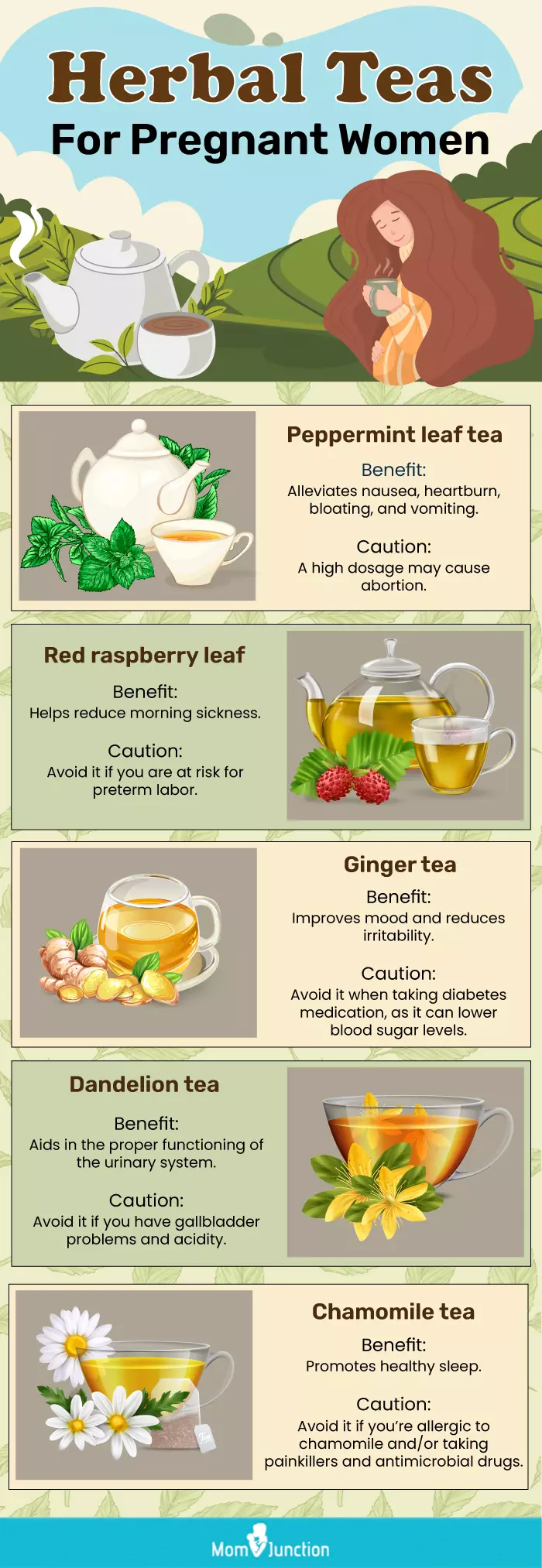
Illustration: Herbal Teas During Pregnancy: Are They Safe?
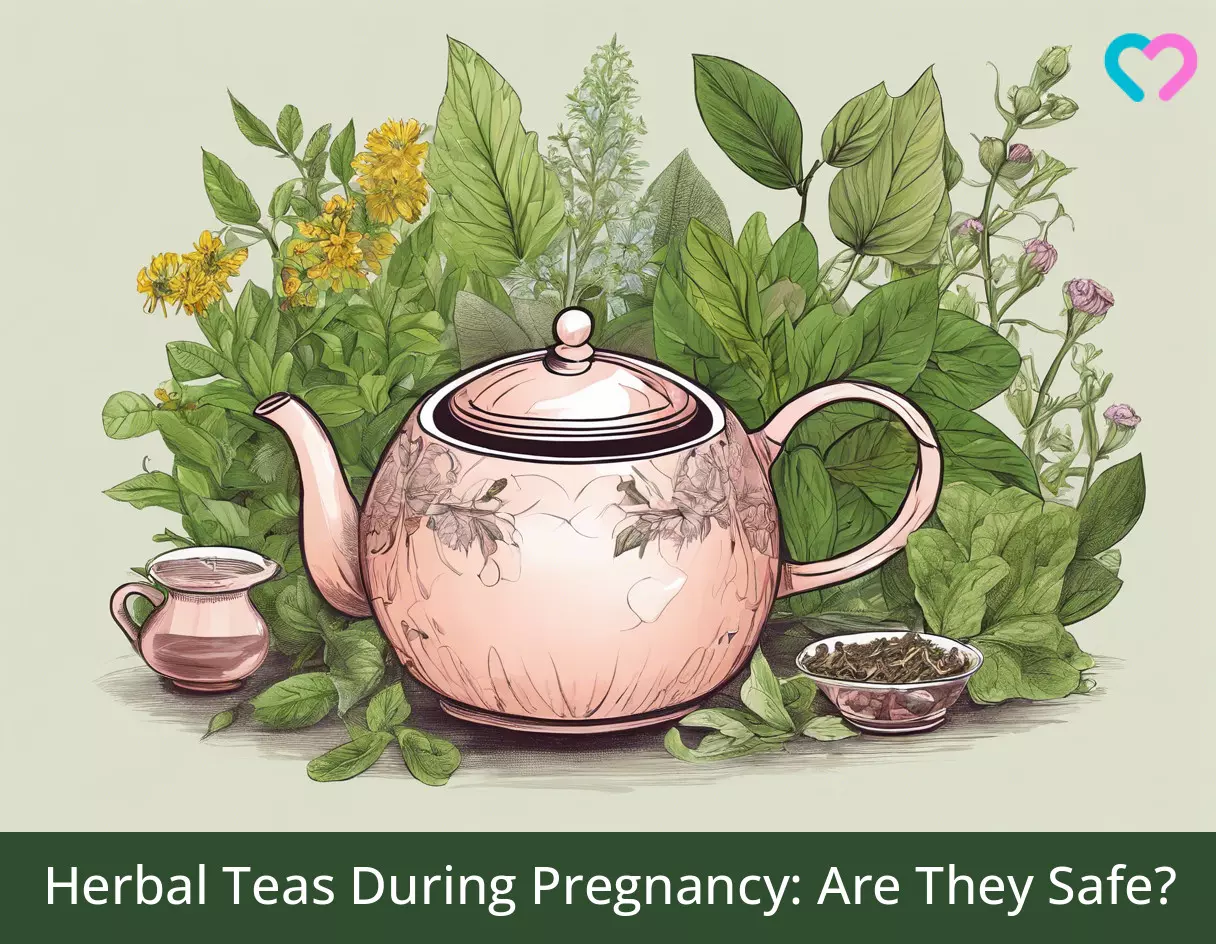
Image: Stable Diffusion/MomJunction Design Team
Personal Experience: Source
MomJunction articles include first-hand experiences to provide you with better insights through real-life narratives. Here are the sources of personal accounts referenced in this article.
i. My 1st trimester must-haves;
https://elaine73.blogspot.com/2015/01/my-1st-trimester-must-haves.html
References
- M. Ahmed, J. H. Hwang, S. Choi, and D. Han; Safety classification of herbal medicines used among pregnant women in Asian countries: a systematic review; BMC Complementary & Alternative Medicine (2017)
https://www.ncbi.nlm.nih.gov/pmc/articles/PMC5686907/ - M. Wilson; Herbal tea consumption during pregnancy; University of Wollongong (1993)
https://www.semanticscholar.org/paper/Herbal-tea-consumption-during-pregnancy-Wilson/d752e95199871783b31c43962cf7238203613f9a?p2df - Herbal Tea & Pregnancy; American Pregnancy Association
https://americanpregnancy.org/healthy-pregnancy/is-it-safe/herbal-tea/ - The potential effects that ginger and ginger supplements may have during pregnancy and lactation; Committee on toxicity of chemicals in food, consumer Products and the environment
https://cot.food.gov.uk/sites/default/files/2021-05/TOX-2021-26%20Safety%20of%20Ginger%20Use%20in%20Pregnancy.pdf - Dandelion; Mount Sinai
https://www.mountsinai.org/health-library/herb/dandelion#:~:text=In%20some%20people%2C%20dandelion%20can,their%20doctors%20before%20eating%20dandelion. - P. Shinde, P. Patil, and V. Bairagi; Herbs in pregnancy and lactation: a review appraisal; International Journal of Pharmaceutical Sciences and Research (2012)
https://ijpsr.com/bft-article/herbs-in-pregnancy-and-lactation-a-review-appraisal/ - Herbal teas during pregnancy and breastfeeding; Pregnancy Birth and Baby Pennyroyal oil; Poison.org
https://www.poison.org/articles/pennyroyal-oil - K. Raikkonen et al.; Maternal Licorice Consumption During Pregnancy and Pubertal, Cognitive, and Psychiatric Outcomes in Children; American Journal of Epidemiology (2017)
https://academic.oup.com/aje/article/185/5/317/2967089 - Slipper elm; Mount Sinai
https://www.mountsinai.org/health-library/herb/slippery-elm - Alfalfa; MedlinePlus
https://medlineplus.gov/druginfo/natural/19.html - Ulbricht C, et al.; Lemon balm (Melissa officinalis L.): An evidence-based systematic review by the Natural Standard Research Collaboration; Journal of Herbal Pharmacotherapy (2005)
https://pubmed.ncbi.nlm.nih.gov/16635970/ - Yerba Mate; MedlinePlus
https://medlineplus.gov/druginfo/natural/828.html - Passionflower; NIH
https://www.nccih.nih.gov/health/passionflower#:~:text=Passionflower%20used%20in%20excessive%20amounts,it%20may%20induce%20uterine%20contractions. - Berna Terzioglu Bebitoglu; (2020); Frequently Used Herbal Teas During Pregnancy – Short Update; NCBI
https://www.ncbi.nlm.nih.gov/pmc/articles/PMC7384490/#:~:text=Herbs%20are%20frequently%20used%20as,per%20day%20during%20pregnancy10.a> - Natural Galactogogues; University of Wisconsin
https://www.fammed.wisc.edu/files/webfm-uploads/documents/outreach/im/ss_galactogogues.pdf - Beata Sarecka-Hujar and Beata Szulc-Musioł; Herbal Medicines—Are They Effective and Safe during Pregnancy?; NCBI (2022)
https://www.ncbi.nlm.nih.gov/pmc/articles/PMC8802657//a>
Community Experiences
Join the conversation and become a part of our nurturing community! Share your stories, experiences, and insights to connect with fellow parents.
Read full bio of Jyoti Benjamin
Read full bio of Swati Patwal
Read full bio of Rebecca Malachi
Read full bio of Aneesha Amonz








